-

Rated 4.5 out of 5
Coursera, launched in 2012 by Stanford professors Andrew Ng and Daphne Koller, is one of the world’s leading online education platforms. It partners with over 300 universities and organizations—including Yale, Google, IBM, and the University of Michigan—to offer courses, certifications, and full degree programs. Coursera’s catalog includes free courses, paid specializations, professional certificates, and even bachelor’s and master’s degrees in fields like business, data science, computer science, and healthcare. One of Coursera’s standout features is the emphasis on academic credibility—learners can earn certifications that are recognized by employers and sometimes even university credit. Its guided learning paths, peer-reviewed assignments, quizzes, and hands-on projects create a structured learning environment. Coursera is ideal for those seeking career advancement or academic enrichment. Its mobile-friendly design, flexible scheduling, and financial aid options help learners from all backgrounds achieve their educational goals.
-
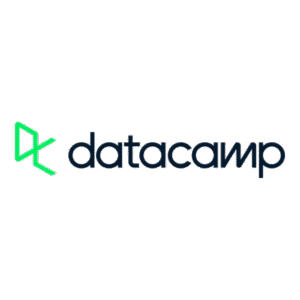
Rated 4.6 out of 5
DataCamp is an online learning platform specializing in data science, analytics, and programming. Founded in 2013, it offers interactive, hands-on learning paths focused on real-world data skills. The platform caters to both beginners and experienced professionals looking to master tools like Python, R, SQL, Power BI, and Excel. Courses are designed as short, bite-sized modules with integrated code editors that allow users to practice directly within the browser. One of DataCamp’s standout features is its structured learning paths (called “Career Tracks” and “Skill Tracks”), which guide learners through a logical progression of topics—from fundamentals to advanced skills. DataCamp also includes projects, assessments, and a mobile app for learning on the go. While it doesn’t offer formal university certifications, it does provide DataCamp certificates upon completion, which are widely recognized in the industry. With affordable monthly subscriptions and discounts for students and teams, it’s a practical platform for those looking to upskill in data, AI, and business intelligence. Its intuitive interface, engaging content, and emphasis on applied learning make it a favorite among aspiring data professionals and working analysts alike.
-
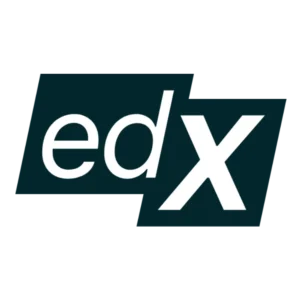
Rated 4.5 out of 5
edX is a nonprofit online learning platform founded in 2012 by Harvard University and the Massachusetts Institute of Technology (MIT). Now operated by 2U, edX provides a wide range of high-quality courses from over 250 global institutions, including top universities and corporations. It offers more than just casual learning—its key focus areas include MicroMasters, Professional Certificates, and full online degrees. Courses are often academic in nature and can be audited for free, with paid options available for verified certificates. edX is especially popular among professionals seeking to enhance their qualifications and among students looking to study real university-level material. With a focus on accessibility, learners can study at their own pace with video lectures, quizzes, and discussion forums. edX’s commitment to open-source technology and inclusive education has made it a respected name in both academic and corporate learning environments. It is considered one of the pioneers in the Massive Open Online Courses (MOOCs) movement.
-

Rated 4.4 out of 5
FutureLearn is a UK-based online education platform founded in 2012 by The Open University. It partners with top universities and institutions around the world to offer short courses, microcredentials, and online degrees. FutureLearn’s model blends academic rigor with social learning—learners progress through weekly content together, participate in discussions, and engage with peers and educators. Courses cover a wide range of topics, from healthcare and psychology to digital skills and business. Many courses are free to audit, with options to purchase certificates or unlock full course access. FutureLearn stands out for its focus on real-world application and societal impact, often featuring content related to global challenges like sustainability, mental health, and social change. Its interface is clean and mobile-friendly, making learning flexible and accessible. The platform is especially popular in Europe and the Commonwealth regions but serves a global audience. While not as technical as platforms like Udacity or DataCamp, FutureLearn excels in delivering well-structured, academic-quality content to curious learners and professionals alike.
-
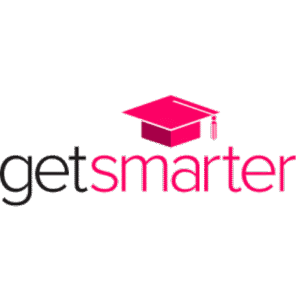
Rated 4.4 out of 5
GetSmarter is a premium online education provider that partners with leading universities like MIT, Oxford, Harvard, and the University of Cape Town to deliver career-focused short courses. Founded in 2008 and now part of 2U Inc., GetSmarter is known for its high-quality academic offerings, professional development content, and strong learner support. Its courses typically run for 6–10 weeks and are designed for working professionals aiming to upskill in areas such as data science, finance, leadership, marketing, and more. What sets GetSmarter apart is its structured approach—each course comes with a weekly schedule, personalized feedback, a dedicated success manager, and a certificate from a top university upon completion. The platform is ideal for professionals looking to gain real-world skills with academic rigor and prestige. While it’s priced higher than self-paced learning sites, the support system, networking opportunities, and industry relevance provide strong return on investment.
-

Rated 4.6 out of 5
LinkedIn Learning, formerly Lynda.com, is an online learning platform that integrates directly with LinkedIn profiles, making it ideal for professionals who want to develop skills and showcase them to potential employers. It offers 20,000+ video-based courses in areas such as business, technology, creative arts, and personal development. Courses are taught by industry professionals and structured in short, digestible lessons. The platform provides certificates of completion that automatically appear on the learner’s LinkedIn profile, adding value to one’s digital resume. One of LinkedIn Learning’s strengths is personalization—its AI suggests courses based on your job title, skills, and industry trends. Users can learn at their own pace on desktop or mobile devices. With an affordable subscription model (monthly or annual), the platform is popular among professionals, freelancers, and corporate teams. It’s especially beneficial for soft skills training, leadership development, and staying updated on the latest tools and technologies. While it may not offer in-depth, project-based learning like some coding platforms, its convenience, integration with LinkedIn, and business relevance make it a powerful upskilling tool.
-
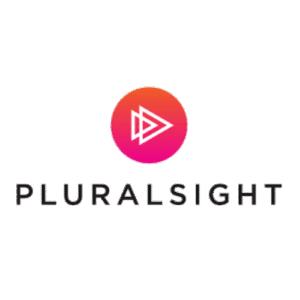
Rated 4.6 out of 5
Pluralsight is a premium tech skills platform offering in-depth courses for software developers, IT professionals, data engineers, and cybersecurity experts. Founded in 2004, it evolved into one of the most comprehensive learning solutions for enterprise-level upskilling. The platform offers thousands of courses taught by industry experts and covers topics such as software development, cloud computing, DevOps, machine learning, security, and more. One of Pluralsight’s unique features is “Skill IQ,” which assesses learners’ skill levels and recommends tailored learning paths. It also offers “Paths” and “Labs,” which guide users through structured content while enabling them to apply what they’ve learned in sandbox environments. Pluralsight is geared more toward intermediate to advanced learners and tech professionals seeking serious career growth. It’s widely used by companies to train engineering teams, with features like reporting dashboards and skill analytics. Though not focused on beginner-level content or hobbyist learners, Pluralsight stands out for its depth, structured approach, and enterprise readiness. With a subscription-based model, it offers monthly or annual plans and occasional free access events.
-
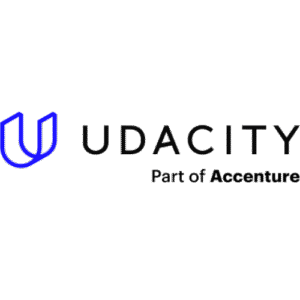
Rated 4.7 out of 5
Udacity is a career-focused online learning platform known for its “Nanodegree” programs—intensive, project-based curricula developed in partnership with industry leaders like Google, IBM, Amazon, and Microsoft. Founded in 2011 by Sebastian Thrun, Udacity originally began as a MOOC but evolved into a specialized platform for tech professionals. Its core offerings span artificial intelligence, data science, machine learning, cloud computing, and autonomous systems. Each Nanodegree program includes real-world projects, interactive quizzes, and mentorship from industry experts. Learners also benefit from career support services such as resume reviews, LinkedIn optimization, and interview prep. While more expensive than platforms like Udemy or Coursera, Udacity’s strength lies in the depth, focus, and job readiness of its programs. Designed for those aiming to break into or advance within the tech industry, the programs often require prior knowledge or professional experience. With a pay-per-program or subscription model, Udacity appeals to learners seeking tangible career outcomes and highly specialized tech skills. It’s widely regarded as a credible alternative to coding bootcamps and traditional computer science education.








